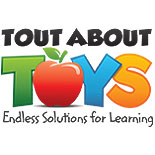7 Strategies to Motivate Your Child to Learn
-
Develop an atmosphere of reading
Reading not only helps children develop a much richer vocabulary but also helps their brains learn to deal with concepts and formal communication. And the skills acquired in reading extend far beyond increasing performance in language art lessons. Students who read well benefit from an increased ability to learn in all subjects, including technical subjects such as math and science.
A key to developing good readers, to making reading fun - not frustrating. If a child decides that reading is boring or frustrating, he will not want to read and his ability to learn will be impaired. Let the children choose their own books to read, help them read, and create activities for them that make reading fun.
-
Encourage open and sincere communication
Encourage your child or student to voice their opinion about what is going on with their education. Create an open atmosphere where he feels comfortable expressing his tastes, dislikes, or concerns. When he shares his opinion, be sure to validate his feelings - even if you don't agree. When children feel that their opinion does not matter or that they are stuck, they are likely to disengage from the learning process. Good learners know their opinion and feel reassured that they can speak openly about their educational experience without being judged, berated, discouraged, or ignored.
-
Focus on your child's interests
When learning engages children in areas and subjects of interest, learning becomes fun and children engage in learning. If you really want to help your child become a good learner, encourage him to explore subjects and subjects that fascinate him. If he likes dinosaurs, help him find attractive and interesting books and stories about dinosaurs. Then challenge him to identify his five favorite dinosaurs and explain why he chose each of them.
-
Introduce and encourage different types of learning styles
Each child has preferences and learning styles that best suit the way they learn. Some children have a dominant learning style, while others prefer to learn using a mix of learning styles. There is not necessarily a correct or incorrect learning style, nor a mix of learning styles. However, by helping your child discover their preferred learning styles, you can use techniques that will improve their pace and quality of learning.
-
Share your enthusiasm for learning
Enthusiasm comes off, especially when it comes to learning new things. If your child or student finds that you are genuinely enthusiastic about learning, they are likely to become enthusiastic about learning. Whether it's history, science, reading, writing, or even math, help him see that learning is a journey of exciting new discoveries. Take advantage of every opportunity - without being overwhelming or domineering - to discover new information with him. As your child sees the joy and excitement that learning brings to your life, he will also begin to share your enthusiasm for learning new things.
-
Make learning fun through game-based learning
Learning through play is not a new concept. It's been a long time. Game-based learning can be very beneficial for many reasons. Using games as an educational tool not only provides opportunities for deeper learning and the development of non-cognitive skills, but it also motivates children to want to learn. When a child actively participates in a game, their mind experiences the pleasure of learning a new system. This is true regardless of whether the game is considered "entertainment" (for example, a video game) or "serious" (for example, a military simulator). Entertaining games have the added benefit of motivating children to want to be involved in the learning process and to learn more.
-
Focus on what he's learning, not his performance
Instead of asking your child how he passed his math test when he got back from school, ask him to teach you what he learned in math today. Focus on what your child is learning, rather than on performance. While performance is important, focusing on the learning experience :
- will communicate to your child that actual learning is more important than test scores
- results are not the most important thing
- you are more concerned about him than you are about his performance
- by focusing on his learning experience that day, you will give him the opportunity to put his lesson into his own words and to consolidate what he learned.


















Add new comment